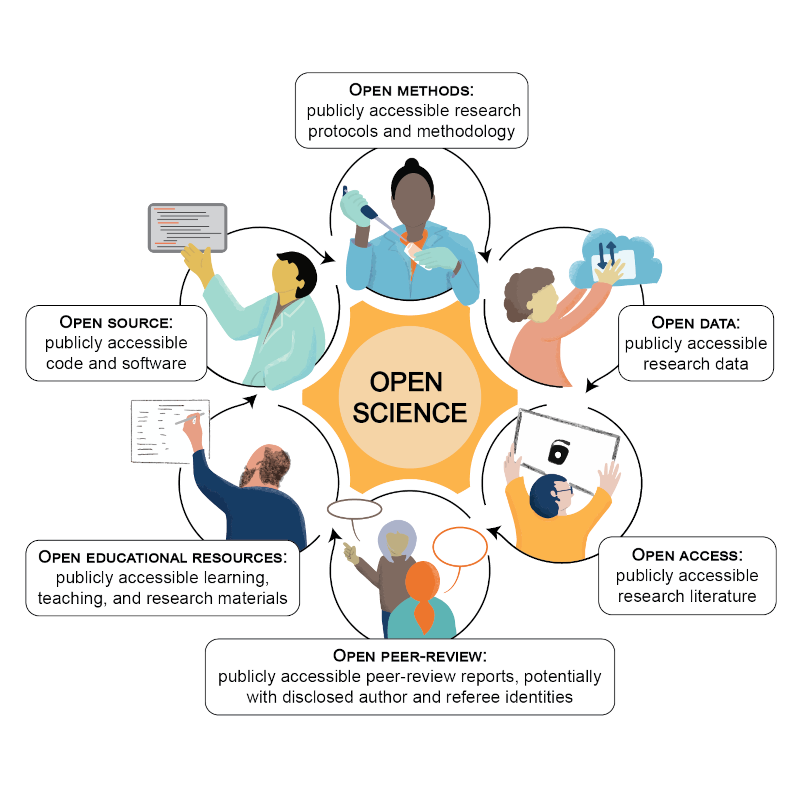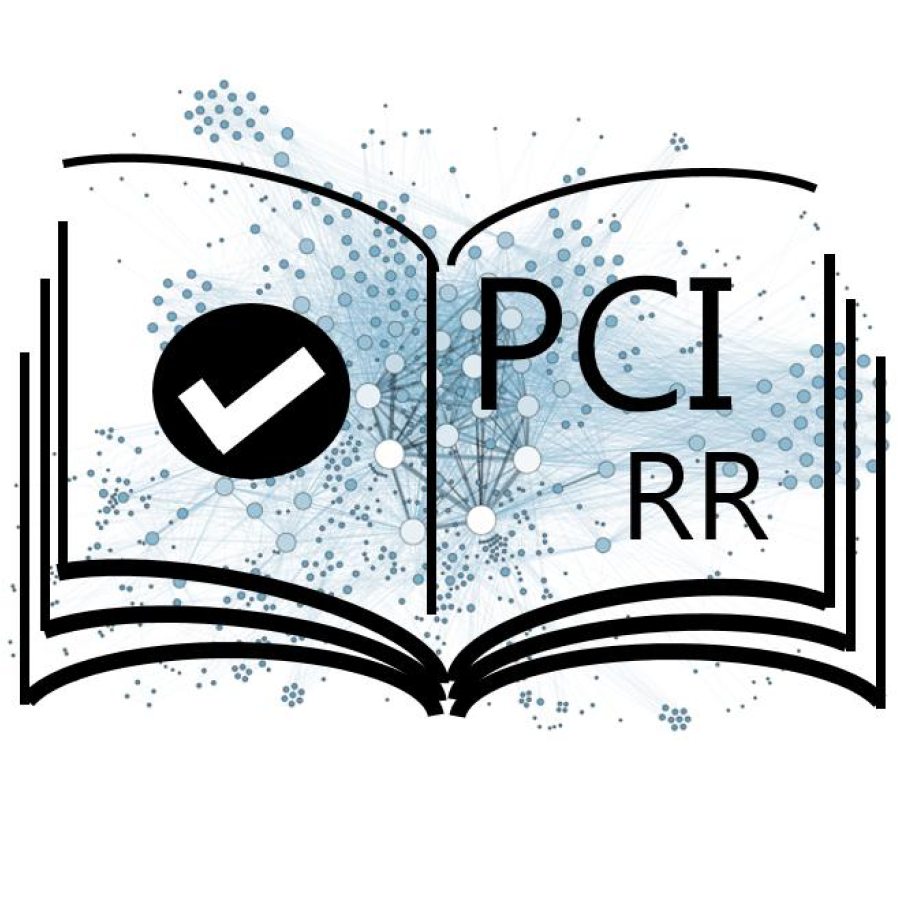Open science
Royal Society Publishing supports open science practices, which seek to open up further the entire research and publication process.
Features of open science include but are not limited to open access, open data, open protocols, open code and transparent peer review. This page outlines some of the open science initiatives at Royal Society Publishing. You may also be interested in our open science collection featuring articles published in Royal Society Open Science that explore open science policies, practices and their implications.
- Open data
- Article and journal metrics (DORA)
- Open citations
- Preprints
- Authorship and contributions
- Transparent peer review
- Objective peer review
- Registered Reports
- Replication studies
Open data
To allow others to verify and build on the work published in Royal Society journals, it is a condition of publication that authors make available the data, code and research materials supporting the results in the article with an open license (CC0 or CC-BY).
For all journals, the Society will cover the cost of depositing data with Dryad (a repository for all scientific disciplines). More information can be found on our open data policy. This policy can be cited by DOI via FAIRsharing.org.
All supplementary material (including video) is published under a CC-BY licence alongside the paper on the journal website and deposited on Figshare, an online repository for all scientific disciplines. Content on this dedicated channel is fully searchable and citable.
Article and journal metrics (DORA)
Royal Society Publishing is a signatory to DORA (San Francisco Declaration on Research Assessment) developed to advance practical and robust approaches to research assessment globally and across all scholarly disciplines.
DORA challenges the role played by the impact factor as the main means for evaluating science and promotes the assessment of research on its own merits rather than on the basis of the journal in which the research is published.
To help move the focus of article ‘success’ away from just the impact factor of the journal it’s published in, we offer a variety of journal and article-based metrics.
Open citations
We are a member of the Initiative for Open Citations I4OC. This collaboration promotes the unrestricted availability of scholarly citation data. Citations are the links that knit together our scientific and cultural knowledge and we have made all the references in our published articles openly available. A global public web of linked scholarly citation data will enhance the discoverability of published content, both subscription access and open access. This will particularly benefit individuals who are not members of academic institutions with subscriptions to commercial citation databases.
Preprints
We are committed to increasing the accessibility of research and ensuring that it is communicated as rapidly as possible. To accelerate this process, we encourage researchers to deposit pre-publication versions of articles in appropriate preprint repositories. We do not consider the posting of preprints to be ‘prior publication’.
Authorship and contributions
All published articles contain an Authors’ Contributions section which lists the specific contribution of each author in the published article. We achieve this through the machine readable CRediT (Contributor Roles Taxonomy).
Transparent peer review
Royal Society Open Science, Open Biology and Proceedings A and B operate open peer review via Web of Science Transparent Peer Review, making the review process as open as possible.
This is achieved by making the reviewer reports, decision letter and associated author responses accessible alongside published articles. Referee reports are made public under an open access licence (CC-BY).
The journals strictly maintain referee anonymity, so although we do encourage reviewers to sign their reports, this is voluntary. Authors are able to opt out of transparent peer review if sufficient reason is provided to the handling editors.
Objective peer review
Royal Society Open Science publishes research across the entire range of science on the basis of objective peer review. Objective peer review accepts all articles which are scientifically sound and useful to the community without assessing novelty or potential impact. Objective peer review also allows for consideration and publication of negative or null results studies.
Registered Reports
Royal Society Open Science publishes Registered Reports. A Registered Report is a form of journal article in which methods and proposed analyses are pre-registered and peer-reviewed prior to research being conducted (stage 1).
High quality protocols are then provisionally accepted for publication before data collection commences. The format is open to attempts of replication as well as novel studies. Once the study is completed, the author will finish the article including results and discussion sections (stage 2).
This will be appraised by the reviewers, and provided necessary conditions are met, publication is virtually guaranteed.
The main benefits of this two-stage approach are:
- Once the methods and proposed analyses are provisionally accepted, the journal will commit to publishing the results regardless of the outcome, provided the final study conforms to the initially approved proposal and meets all quality checks. This means that publication bias is reduced as negative results will not prevent publication.
- Peer review of the research proposal provides an opportunity for the authors to receive constructive critical feedback that may help them to fine-tune the study design prior to conducting the experiment.
- This process helps to reduce publication bias.
Replication studies
When we publish an empirical study we assume responsibility for the replicability of that study and we invite the submission of replications of previous studies to reflect this.
Royal Society Open Science has a Replication Policy that commits to publishing valid replications of studies previously published in the Psychology and Cognitive Neuroscience section of the journal or in other journals.














